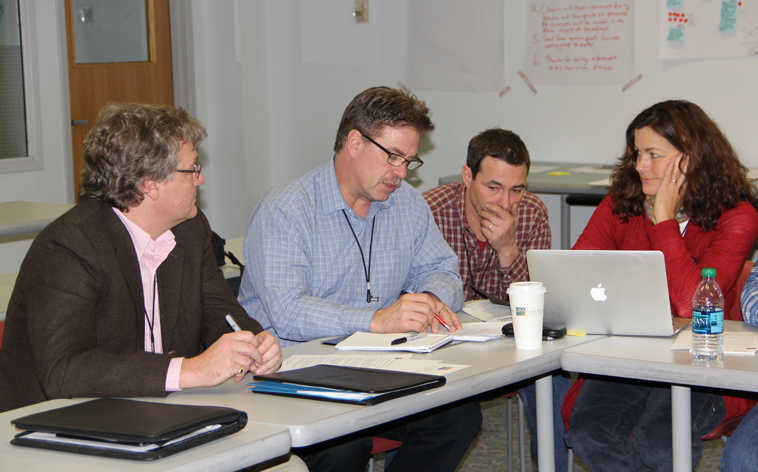A dozen Kenai Peninsula residents were tapped to help Governor-elect Bill Walker transition into office.
A team of nearly 250 volunteers from communities around the state converged on Anchorage Friday, and throughout the weekend, to lend their expertise on everything from fisheries to fiscal policy as Walker, an independent, and incoming Lieutenant Gov. Byron Mallott, a Democrat, prepare to take office.
“It’ll be two days of very intense brainstorming, reviewing documents and information and then, out of that, giving the governor-elect and his administration … the best advice on what you, as a group, come out of it with,” said Tim Navarre, of Kenai, who is on the fiscal policy team. “It’s up to him and his commissioners to see if that’s helpful.”
Navarre, who is on the Kenai City Council and the Board of Education for the Kenai Peninsula, said he has served on transition teams in the past — though not for a state governor.
On his radar, Navarre said, was the state’s budget.
Walker and Mallott will be sworn in on Dec. 1 in Juneau according to a campaign media release, and the state’s budget is due about two weeks after the ceremony.
The quick transition requires the two to move quickly, Navarre said.
The state’s 2013-14 budget, which would need oil prices to be an average of about $117 a barrel to be balanced, is facing a steep decline. Currently, oil prices are approaching about $75 a barrel, according to the state’s Department of Revenue.
“So there’s already the potential of a shortfall from anywhere from $1-3 billion,” Navarre said.
Likely, he said, his team would be asked to weigh in on portions of the state’s budget that need to be trimmed.
“Governor-elect Walker has raised the issue that he certainly realizes that he’d rather not come into office looking at $75 a barrel oil and $3 billion in deficits, but at the same time, that’s what the status is. That’s why you bring people into all areas of state government to find solutions,” Navarre said.
In fisheries, several Central Peninsula residents have been asked to participate.
Debra Holle Brown, of Kasilof, said she could have helped in several areas but was happy to weigh in on fisheries.
Brown, a former chair of the Alaska Republican Party, said her family had a background in commercial fishing and she has followed fishing issues closely.
“There are clearly some frustrations, so you have to have people who can understand, with some breadth and depth. It’s helpful to have someone who understands commercial fishing and yet also understands what’s going on with the personal-use fisheries,” Brown said.
United Cook Inlet Drift Association executive director Roland Maw is also on the team.
Maw said he helped former governors Frank Murkowski and Sarah Palin with their transitions into office and was looking forward to weighing in on fisheries management.
“There are short-term goals and long-term goals,” Maw said of the Alaska Department of Fish and Game’s budget. “I don’t know what other people have done, but I’ve prepared at least three different scenarios (for the organization’s budget).”
Outside of budget and finance issues, Maw said he had several other recommendations he’d like to make to the transition team, including current threats to the fishing industry.
Maw, Brown and Navarre said they were happy to help with the transition, regardless of the outcome.
“This is just issue-scoping and a good open … conversation. It’s the way Alaska should be,” Brown said.
Rashah McChesney can be reached at rashah.mcchesney@peninsulaclarion.com.

